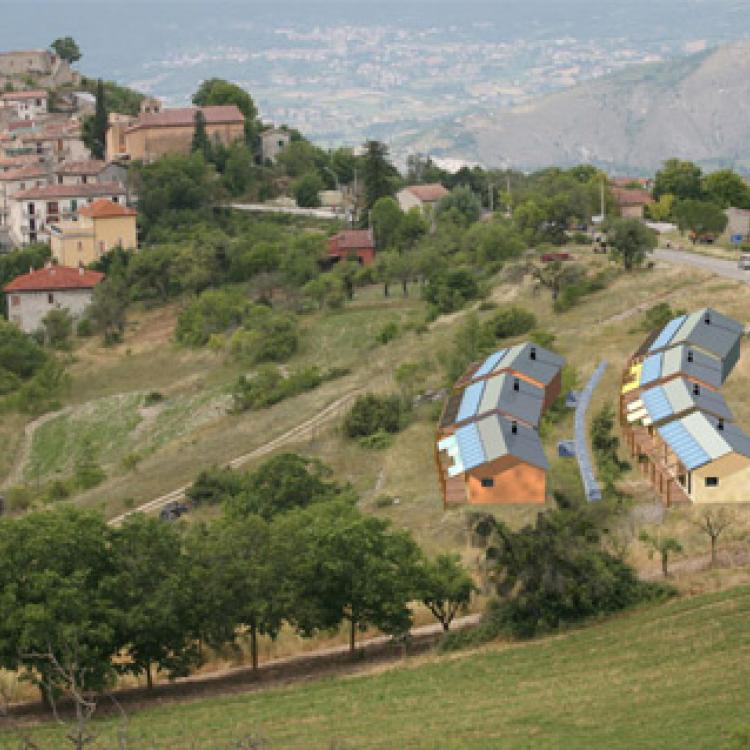EVA project (Self-Built Ecovillage)
Pescomaggiore is a small village of early medieval origin at the gates of the Gran Sasso - Monti della Laga National Park, about ten kilometers from L'Aquila. The earthquake of April 6 destroyed a large part of the houses and the historical-cultural heritage. A part of neighbors and natives, even before the earthquake, had given life to the Committee for the Renaissance of Pescomaggiore, to improve the quality of life and recover the historic center with information campaigns, activating participatory processes and launching micro-projects in the field agriculture, tourism and artistic coexistence. After April 6, the Committee decided, in accordance with its objective, which had become an emergency, to create a self-built and self-financed village to allow as many Pescomaggiore families as possible to stay and live in their village.
Based on a project by the architects Paolo Robazza and Fabrizio Savini of BAG studio mobile and with the technical assistance of Caleb Murray Burdeau, an expert in bioarchitecture, it was decided to build, on a land loaned by some residents of the town a few hundred meters away. . from the town, a village of low-cost apartments with two and three rooms with minimal environmental impact in compliance with current anti-seismic and building regulations.
The construction technology involves the use of a supporting wooden structure and filling in straw bales. The modularity of the structures facilitates their reproducibility. The use of straw in this area of Abruzzo is a relatively new construction technique, but one that fits naturally into the surrounding agricultural landscape and also responds to the ideal of a short supply chain in the construction field, as the raw materials are bales of straw sourced locally from the cereal fields, along with the flour that will be used to make bread in the village's common oven. Electricity will be supplied by photovoltaic systems and heating by a wood stove, enough to heat the whole house with just a couple of hours of power-on, since straw and other construction devices make these houses perfectly insulated.
Next, the town will be equipped with a phyto-purification plant and composters where organic waste will be transformed into fertilizer for irrigated gardens, also thanks to the channeling of rainwater. The involvement of future inhabitants in the design and construction is the condition to ensure the high quality of the spaces, economic savings and a strong bond between the inhabitants themselves and their house-town.
